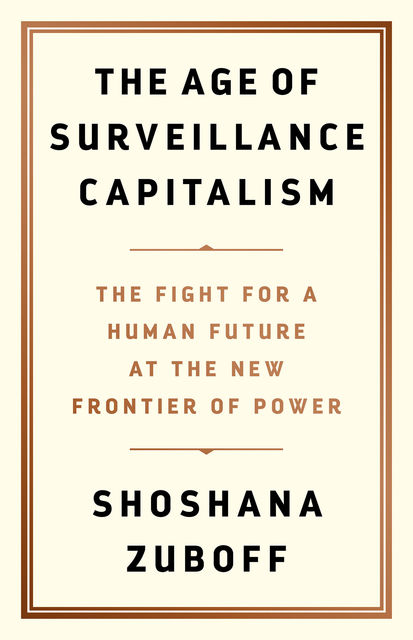
en
Lees in onze apps:
iOS
·Android
The Age of Surveillance Capitalism
Dit boek is momenteel niet beschikbaar
1.073 afgedrukte pagina’s
Impressies
- Azizbek Mannopovdeelde een impressie4 jaar geleden
Brilliant
Citaten
- Azizbek Mannopovciteerde uit4 jaar geledenUsing Karl Polanyi’s lens, we see that surveillance capitalism annexes human experience to the market dynamic so that it is reborn as behavior: the fourth “fictional commodity.” Polanyi’s first three fictional commodities—land, labor, and money—were subjected to law. Although these laws have been imperfect, the institutions of labor law, environmental law, and banking law are regulatory frameworks intended to defend society (and nature, life, and exchange) from the worst excesses of raw capitalism’s destructive power. Surveillance capitalism’s expropriation of human experience has faced no such impediments.
- Azizbek Mannopovciteerde uit4 jaar geledenRadical indifference is a response to economic imperatives, and only occasionally do we catch an unobstructed view of its strict application as a managerial discipline. One such occasion was a 2016 internal Facebook memo acquired by BuzzFeed in 2018. Written by one of the company’s long-standing and most influential executives, Andrew Bosworth, it provided a window into radical indifference as an applied discipline. “We talk about the good and the bad of our work often. I want to talk about the ugly,” Bosworth began. He went on to explain how equivalence wins out over equality in the worldview of “an organism among organisms” that is essential to the march toward totality and thus the growth of surveillance revenues:
We connect people. That can be good if they make it positive. Maybe someone finds love. Maybe it even saves the life of someone on the brink of suicide. So we connect more people. That can be bad if they make it negative. Maybe it costs a life by exposing someone to bullies. Maybe someone dies in a terrorist attack coordinated on our tools. And still we connect people. The ugly truth is that… anything that allows us to connect more people more often is de facto good. It is perhaps the only area where the metrics do tell the true story as far as we are concerned.… That’s why all the work we do in growth is justified. All the questionable contact importing practices. All the subtle language that helps people stay searchable by friends. All of the work we do to bring more communication in.… The best products don’t win. The ones everyone uses win… make no mistake, growth tactics are how we got here.26
As Bosworth makes clear, from the viewpoint of radical indifference the positives and negatives must be viewed as equivalent, despite their distinct moral meanings and human consequences. From this perspective the only rational objective is the pursuit of products that snare “everyone,” not “the best products.” - Alexey Terekhovciteerde uit4 jaar geledenWe are the sources of surveillance capitalism’s crucial surplus: the objects of a technologically advanced and increasingly inescapable raw-material-extraction operation. Surveillance capitalism’s actual customers are the enterprises that trade in its markets for future behavior
fb2epub
Sleep je bestanden hiernaartoe
(maximaal 5 per keer)

